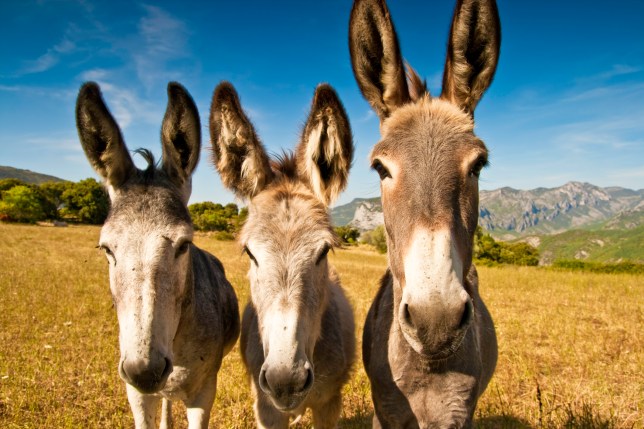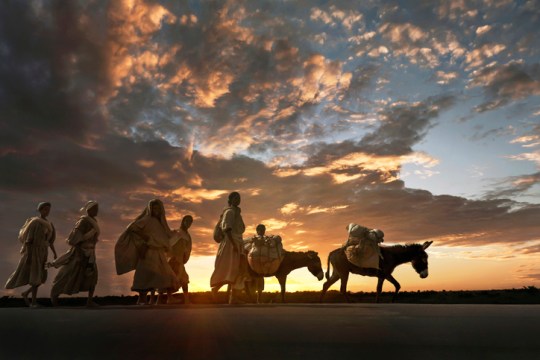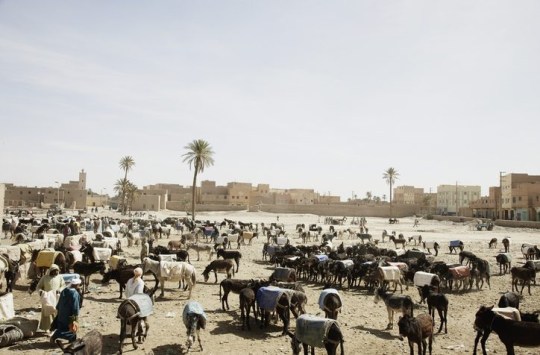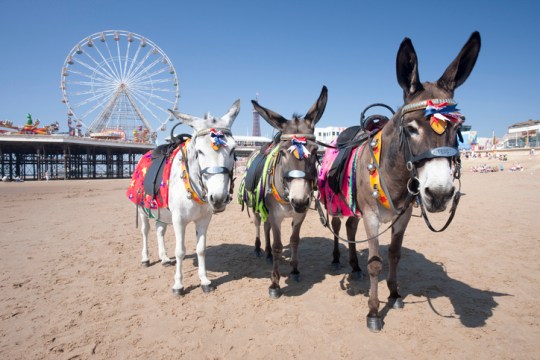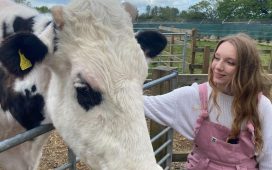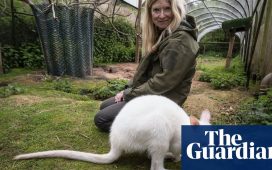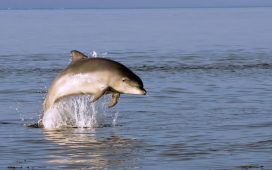In the UK, donkeys are a bit of a curio these days. You might spot one at a city farm, or maybe giving rides on the beach.
In Africa, where there are around 53 million of them, they are essential to lives and livelihoods.
But in China, it is not the donkeys themselves that are sought after, it is their skin.
For years, demand from the country has led to around six million donkeys in Africa being killed annually and their skins used to make ejiao, a traditional Chinese medicine. Sold in bars, pills or liquids, it is said to ‘strengthen’ the blood, which in turn leads to a wide range of benefits from reducing wrinkles to boosting fertility.
Scientific evidence to back this up is scarce.
Nevertheless, it is so popular, China’s own donkey population plummeted from nine million in 2020 to fewer than 1.8 million in 2022. The growing gap in supply and demand led producers to turn to Africa, where the loss of each donkey to ejiao is significant.
What is ejiao?
Ejiao is a traditional Chinese medicine made from collagen extracted by boiling donkey skin. The collagen forms a gelatin which can be mixed with other ingredients to create a wide range of products, including cosmetics.
It is believed to improve blood circulation, meaning it is often used by those suffering anaemia, but is also taken by those with fertility issues, and is thought to have anti-ageing properties.
Lauren Johnston, from the South African Institute of International Affairs, said: ‘Donkeys are estimated to support about 158 million people in Africa. In rural areas, the presence of a donkey in a household helps to alleviate poverty and frees women and girls from household drudgery.
‘Donkeys are one of the simplest, most sustainable and affordable means of transporting people, goods and farm inputs and outputs from home to farm to market and vice versa, as well as to water wells and other places.’
Writing in The Conversation, she added: ‘Donkey ownership increases productivity and lessens hard work by, for example, reducing the loads women must otherwise carry themselves. In Ghana, for instance, owning a donkey was found to save adults about five hours of labour a week, and children 10 hours a week. The presence of a donkey also freed girl children to go to school.’
While there are also welfare issues surrounding working donkeys across the world, especially those in brick kilns, they are also essential in combatting poverty.
For this reason, a number of African countries have previously tried to manage the trade, but with little success.
In the case of Tanzania, authorities banned a growing formal donkey industry when supply was unable to meet demand.
In Kenya, a ban on donkey exports was overturned after exporters appealed it in the High Court.
Earlier this year however, the African Union banned the slaughter of donkeys for their skin in all 54 countries on the continent after sustained campaigning by charities.
Speaking to the BBC at the time, Dr Solomon Onyango from the Donkey Sanctuary in Kenya said: ‘At first our governments saw this [the donkey skin trade] as an opportunity, and many legal slaughterhouses opened in Africa.
‘But, [here in Kenya], between 2016 and 2019, about half of our donkeys were killed for the trade.’
In the UK, the Donkey Sanctuary’s CEO Marianne Steele said: ‘This is a truly momentous result for the welfare of donkeys in Africa. The decision to ban the slaughter of donkeys for the skin trade is enormous. Donkeys are sensitive and intelligent creatures who deserve protection for their own sakes, and for the countless communities who rely on them.
‘This agreement from leaders of the African Union strikes at the heart of the brutal skin trade. It’s our hope that this decision will act as a catalyst for the rest of the world to act now, to not just save our donkey populations but to actively recognise their value and protect them properly.’
But what happens now? It seems unlikely the ban will reduce demand for ejiao, while a shortage in supply will only drive up prices – which will itself likely drive illegal trade and the search for new markets.
In the future, a solution could lie far from the towns and villages where donkeys work.
Ejiao requires only the collagen from donkey skin, something campaigners argue could be produced entirely sustainably using cellular agriculture. By this method, laboratories would simply have to extract cells from living donkeys, which would then be used to create the gelatin needed for ejiao – so no more donkeys would be killed.
However, this replacement is still largely theoretical, and will take time to scale up to meet demand.
For now, the African Union ban is a positive step towards protecting the world’s donkeys – a humble animal without which the world would look a very different place.
Their numbers must still be monitored and protected however. As supply falls following the ban, the illegal trade may flourish, impacting both the world’s donkeys, and the people who rely on them to survive.
MORE : Crow leaves police officers baffled after being able to perfectly mimic siren
MORE : UK flooded with fake stamps from China slammed as ‘economic warfare’
MORE : Only on a Kenyan safari could you see an elephant wander freely past a football pitch
Get your need-to-know
latest news, feel-good stories, analysis and more
This site is protected by reCAPTCHA and the Google Privacy Policy and Terms of Service apply.
